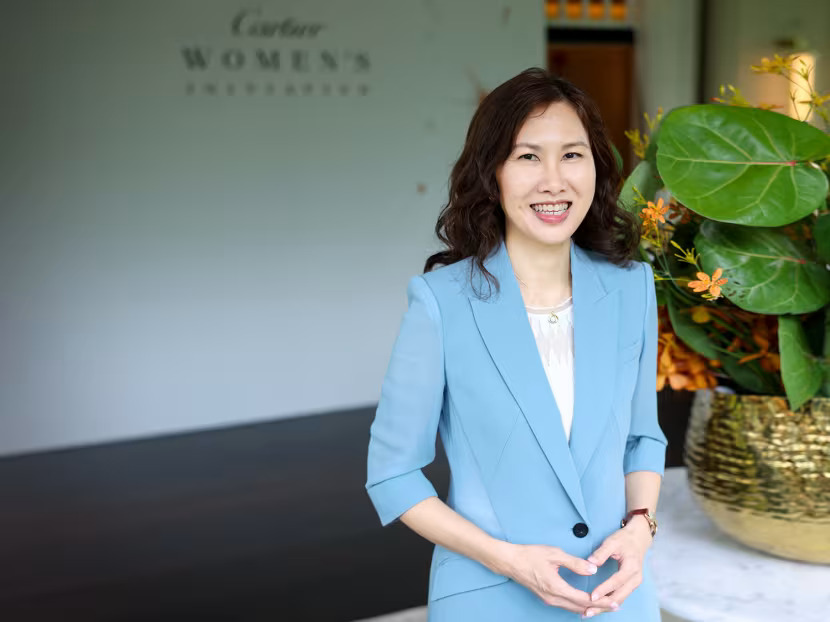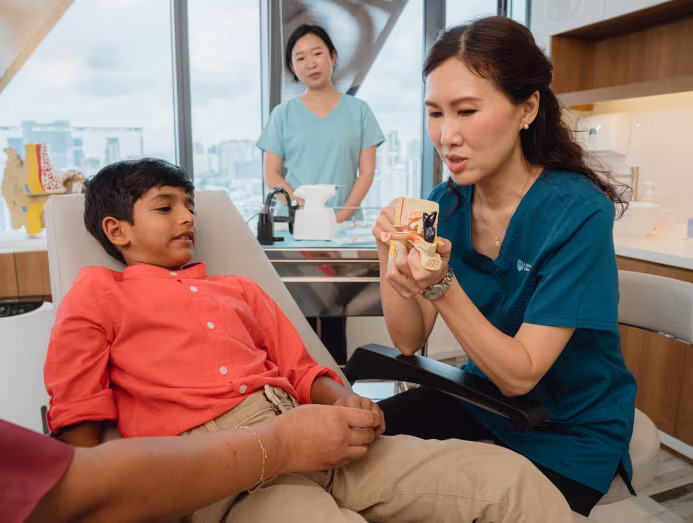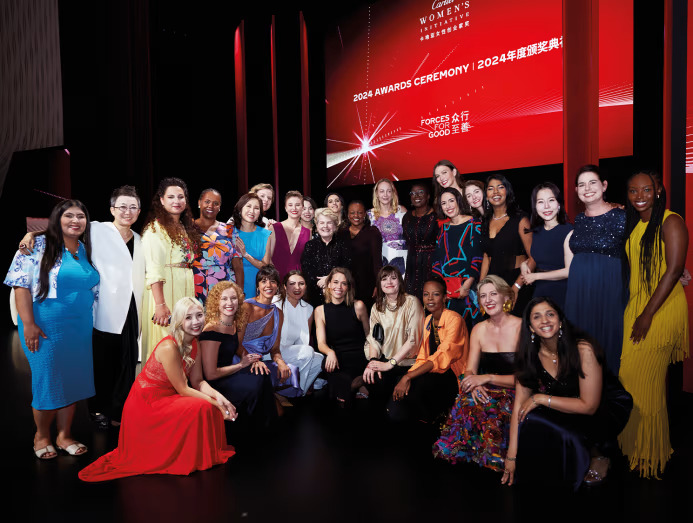CNA – Fate often shapes our career paths, and it certainly played a role in guiding Dr Lynne Lim towards her calling in medicine.
Now 55 years old, Dr Lim, a Singaporean ENT surgeon and founder of the medtech start-up NousQ, initially had different interests in her youth. “I was deeply drawn to the arts, design, reading, and writing,” she revealed.
“I initially wanted to study architecture, but my mum was very crafty. When I applied for university, I had to list two course choices. I told her I would list architecture first and medicine second. She insisted that medicine should never be second and urged me to move it to first, saying I probably wouldn’t get in and would end up in architecture instead,” Dr Lim recalled with a chuckle.
Despite the odds – back in the late 1980s, the NUS Yong Loo Lin School of Medicine had a gender cap on entry for female students – Dr Lim got in. She ended up falling in love with the medical field.
“It marries the arts and science. A big part of medicine is the human side, where we are practising the art of healing. I’m very happy to be a doctor,” she quipped.
Although Dr Lim initially wanted to specialise in neurosurgery, a visit to an ENT doctor for an ear block convinced her to pursue this field instead.
“I hardly ever plan my life. I really believe in seizing opportunities and that if you work hard, you can be successful in anything,” she said.

THE AHA-MOMENT
It was a humanitarian mission in rural Cambodia where Dr Lim discovered a gap in the treatment for Otitis Media with Effusion (OME), also known as “glue ear”, a condition where fluid builds up inside the middle ear, which can result in hearing loss.
Treatment requires surgery to insert an ear tube.
“I was able to remove neck tumours in children with just local anaesthesia. The next day, I noticed that hundreds of kids had trekked for days over the mountains seeking treatment for glue ear,” she recalled.
Resources were limited and Dr Lim would have needed several different instruments, general anaesthesia, an operating theatre and a surgical microscope to conduct the operation. “I was distraught at having to turn them away.”
Glue ear, however, is not a “poor man’s problem”, Dr Lim clarified.
“There is a huge unmet need even in developed countries due to limited numbers of operating theatres, anaesthesia and other facilities, as well as long waiting times.”
The “aha-moment” came one day when she took her daughter, then eight-years-old, to get her ears pierced. Using just a piercing gun, the procedure took only a few seconds with just two clicks.
“The gun was so close to the ear so I thought, if we could have a device just like this to treat glue ear, we could do the surgery really quickly.”
At the time, Dr Lim was teaching and practising at the National University Hospital (NUH). She spoke to the faculty and managed to secure a research grant to develop the device, bringing in engineer Gan Chee Wee into her team.
Securing funding proved challenging. Initially, grants from the Agency for Science & Technology and Research and the National Research Foundation Singapore supported the project.
However, when Dr Lim left public practice to open her own private clinic, obtaining grants became significantly more difficult.
Still, she was determined to ensure that the device would eventually see the light of day. Going into private practice, even if it required leaving a prestigious position as vice-dean of the NUS School of Medicine, would mean more control over her time for R&D.
“I realised that if I didn’t actually take a step out to work on the device, it would never get to patients. I would just continue writing papers and it would just remain a research project.”
It took over a decade and 20 prototypes until the final version of the CLiKX device was developed. In 2021, in the midst of the pandemic, Dr Lim and Gan co-founded their medtech start-up, NousQ.
CLiKX has passed a pilot clinical human trial at NUH demonstrating safety and efficacy. In 2025, it will undergo pivotal trials in the US with the aim of getting approval from the Food and Drug Administration (FDA).
Dr Lim hopes to get the device on the market by 2026. Her dream is to trek the world with a CLiKX in her pocket, inserting ear tubes for those who need them.

DOCTORS IN ENTREPRENEURSHIP
In May 2024, at the Cartier Women’s Initiative awards ceremony in Shenzhen, Dr Lim was announced as the first prize winner of the Science & Technology Pioneer category.
She beat out 234 applicants and three finalists to clinch the top prize, which includes USD100,000 (SGD135,000) in grant funding from the French jewellery house.
“It was amazing to compete in the top three, especially as a female in the science and technology field. On top of that, to represent Asia and Singapore in the category,” said Dr Lim.
“There are some moments that are life changing and this is one of them. It’s a huge encouragement for my team.”
Stepping into the entrepreneurship and start-up world hasn’t been easy for Dr Lim.
“Medicine is very rigorous but I never quite expected the difficulties of being an entrepreneur, partly because as doctors, we are not trained for it. And as a start-up in Singapore that has created a surgical device, there are not many mentors in the space,” Lim reflected.
Now in her 50s, Dr Lim self-proclaims that she is ” quite old by entrepreneurship standards”. “However, experience is crucial in developing surgical devices,” she emphasised. “In contrast, founders in other fields such as tech are typically younger.”
Her experience as a surgeon, however, has proven invaluable in decision-making. In the operating room, she frequently faces the need to make quick decisions when situations become critical.
“As surgeons, we are comfortable with making decisions with limited information. That is helpful as an entrepreneur, as we often have no information or incomplete information, or ten different versions of how to do things.”
Adopting a can-do attitude has also been beneficial. “Hats off to all start-up founders, it’s really a difficult job. If you don’t have the mindset that you can fail, then you shouldn’t be out here because if you’ve created something that’s not very disruptive, then it’s not very entrepreneurial,” said Dr Lim.

THE QUEST FOR MEANING
Beyond the CLiKX device, NousQ has ambitions to build other medical and surgical devices. “They might not be in the ENT space. We already have patents for other products. We can also incorporate AI and go into other healthcare related services,” Dr Lim revealed.
The name NousQ was derived from the Greek word “Nous”, which means intellect. Dr Lim interprets it to mean vision, mastery and heart.
“You have to be very good in what you do, but the heart is the most important.” ‘Q’ was added to the name “as a reminder of our quest to serve huge, unmet patients’ needs.”
When asked about what keeps her going, Dr Lim cites her thirst for challenge and her desire for excellence. “I don’t like being bored or doing something someone else has already done before.”
This has been a lifelong trait: “Once, in primary school, my teacher told us to paint a brinjal to be handed in the next day. I went back home, sat on the floor, and just painted so many versions. I even went to sleep in my school uniform. But it felt good to hand in my best work the next day,” Dr Lim shared.
“I like to be proud of my work. My motivation is just to do the best that I can,” she continued.
Beyond personal satisfaction, she finds meaning in the impact of her work. “The most rewarding part of my job is that we are helping others. We are doing something beyond the daily grind of going to work and coming home. To me, that would be very meaningless.”




